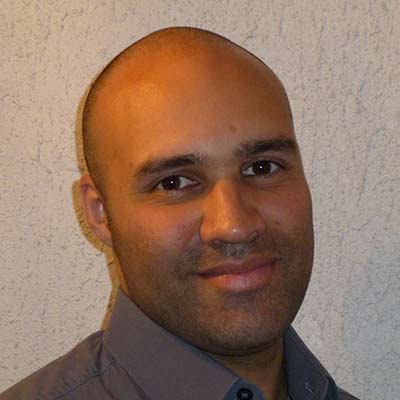French
Voulez-vous please be polite?
French people view their language as sacrosanct. It’s no coincidence that the French have their very own Académie française – a scholarly institution that watches over and controls how the language is used. There is also a “Loi relative à l’emploi de la langue française“ (“Law on the Use of the French Language”), which regulates the use of French by public sector institutions. Radio stations are required to play a certain quota of French-language songs, and advertising slogans must be translated into French. One example of what this means: Our neighbours have introduced a French equivalent for many English terms that Germans have adopted in their everyday parlance: Emails are called ‘courriel’, a computer is an ‘ordinateur’, while software is ‘logiciel’.
It is unusual to encounter the more familiar ‘tu’ form of address in French marketing texts.
This self-confident approach to one’s own language and the consequent avoidance of Anglicisms are just two of the many challenges that professional translators like the Parisian Salim Malik must always keep in mind when switching from German into French on a daily basis. Here’s another: French is frequently more polite than German. ‘The familiar “tu” form of address is practically unheard of in French marketing texts. Customers are always addressed respectfully in the more formal “vous” form. Unless you are looking to attract an exclusively younger audience.’ Equally, though, French tends to have a romantic, emotional touch, perhaps even at times – for instance in ceremonial speeches – flowery. A German translation will need to subdue this kind of style a tad.
More elaborate than the compressed form
The translation professionals also need to draw on their profound understanding of the language when converting the distinctly compressed German sentences with their frequent compound nouns into the more elaborate French equivalent – as it tends to be substantially longer. The translator Malik has an example: ‘Just one term like “Wirtschaftszweige” (branches of industry) becomes an extensive string of words like “les différentes branches d’activités économiques”.’ So it’s hardly surprising that plenty of French translations are substantially longer than their German equivalent, which can certainly cause difficulties when dealing with small text boxes with limited space. Crafty sentence construction is not always enough to solve this riddle. ‘French has a tendency toward wordy precision, to driving home the meaning. If push comes to shove you have to break it down into bullet points or abbreviations,’ says Malik.
Is it a ‘char’ or a ‘voiture’?
A broad vocabulary is another fundamental element when translating from French into German or vice versa. After all, French comes in several guises. For instance there is the Canadian version of French words, which show far greater similarity to their English equivalents: Cars, called ‘voitures’ in France, are known as ‘chars’ (quite like the English counterpart) in Canada. Originally, though, this word meant ‘chariot’, and is used for ‘tanks’ in France. On the other hand: The fast food company Kentucky Fried Chicken goes by the same name in France, while the Canadians insist on a translation: There it is called Poulet Frit du Kentucky.
Plenty of linguistic pitfalls – also in the Swiss version of French
You don’t need to switch continents to blunder into linguistic pitfalls in French. Professional translators need to consider carefully how the precise meanings of French words change when used in Switzerland. ‘In Switzerland, for instance, the word for tablets is “tablettes”. But in France the term describes the entire package. Here the more standard word for individual tablets would be “comprimé”,’ explains the translator Malik.
Plenty of mix-ups, meaning high demands for translators
So there is no shortage of linguistic booby traps when moving from French into German and vice versa. This is why it takes real professionals. Whether the text involves branches of industry like information technology, medicine or tourism, more cultural areas such as films and literature or political and legal documents. There is plenty of demand. And the standards placed in a first-rate translation – not just at the Académie française – are high.

Salim Malik
Salim Malik was raised bilingual in Cologne and Paris . He has worked as a professional translator for the language combination German to French for five years now.
